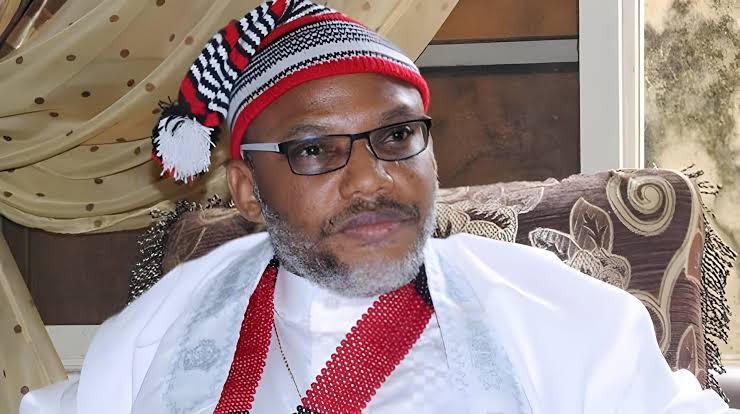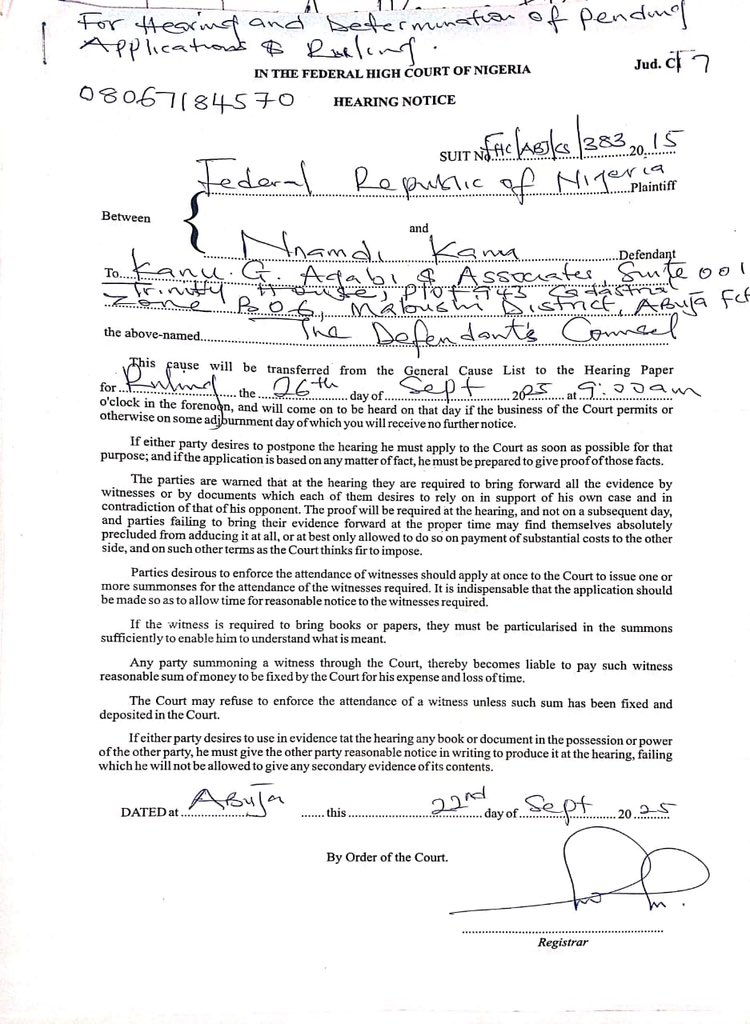
Abuja Court Brings Forward Nnamdi Kanu’s Hearing to September 26 for Ruling on No-Case Submission
On July 18, the judge set the case for October 10, creating a three-month gap.
Abuja, Nigeria (September 22, 2025)
The Federal High Court in Abuja has moved the next stage of Mazi Nnamdi Kanu’s trial from 10 October to 26 September 2025 to deliver its ruling on the defence’s no-case submission, a motion arguing that the prosecution has failed to present any evidence warranting further trial.

Kanu, leader of the Indigenous People of Biafra (IPOB), was forcibly abducted from Kenya in June 2021 and brought to Nigeria in what international law terms an extraordinary rendition.
IPOB maintains that this “criminal operation” stripped the Nigerian government of any legal authority to prosecute him. They had described it as a “national disgrace”, an “act of terrorism” and a violation of both domestic and international law.
In June, the High Court of Kenya agreed with IPOB when it delivered a judgment declaring the abduction and transfer of Nnamdi Kanu to Nigeria as illegal.
In 2022, Nigeria’s Court of Appeal acquitted Kanu of all charges, ruling that his abduction violated local and international law.
Rather than comply, the federal government pressured the justices and transferred all of them who issued that decision and later forced a reversal of the judgment through a differently constituted panel, an action legal observers describe as unconstitutional and tantamount to “state terrorism” under Nigerian law.
Kanu’s doctors continue to warn that he suffers from a serious heart condition and that the illegal detention conditions at the Department of State Services (DSS) facility massively contributes to the deterioration of his health.
The lawyers argue that ongoing detention amounts to unlawful imprisonment and a threat to his life.
The September 26 sitting will determine whether the trial court agrees that the prosecution has no case to answer, and the illegality of the trial.
The outcome will test the judiciary’s independence and Nigeria’s willingness to honour both its constitution and international obligations after four years of controversial detention and repeated government defiance of court orders.